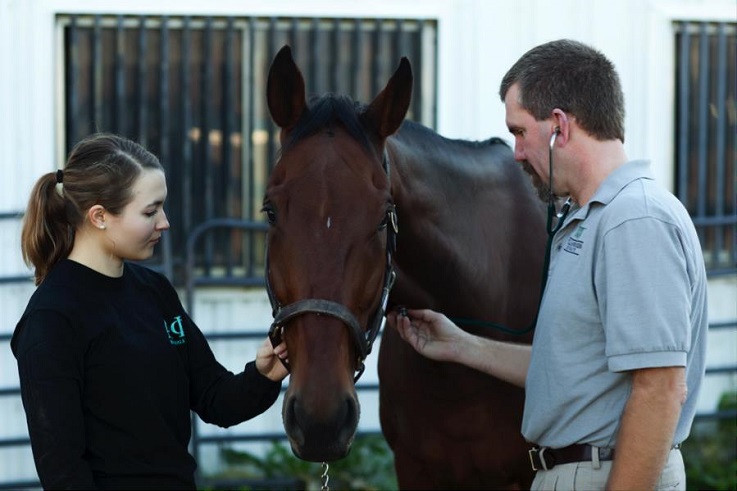Genetic research helping horses

For centuries, the equestrian industry has relied on genetics to breed specific physical traits in horses — long before we had any understanding of what DNA even was.
From coat color genetics to origins of disease, research in equestrian genetics can mean curing and eradicating diseases, and understanding physical, social and psychological traits.
The Morris Animal Foundation, which supports scientific research in veterinary medicine, released a 2016 Equine Report that highlights current funding efforts and the work being done to uncover genetic drivers of cancers. Some of these include a genetic mutation associated with a high incidence eye tissue cancer in Haflinger horses, and another pinpoints genetic regions associated with equine sarcoid tumors, a common skin cancer.
“Finding genetic markers is critical for identifying at-risk horses, and enabling development of new cancer prevention and treatment methods,” states the report.
Other recent research published in the journal Animal Genetics from Kyoto University in Japan, begins to identify a genetic basis for tractability, or how easily horses can be trained.
William Woods University equestrian students have access to state-of-the-art facilities, like the Center for Equine Medicine, and biology laboratories, which puts students interested in studying horse genetics in a valuable place.
Equestrian science students interested in genetics can take various biology courses, such as BIO 231 Genetics and its corresponding lab, to help them build a foundational understanding of a growing field. They may also participate in the Genomics Education Partnership research experience.

